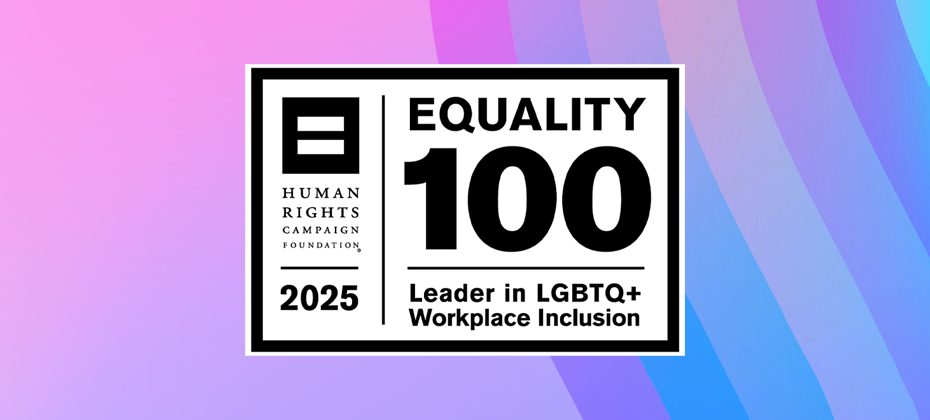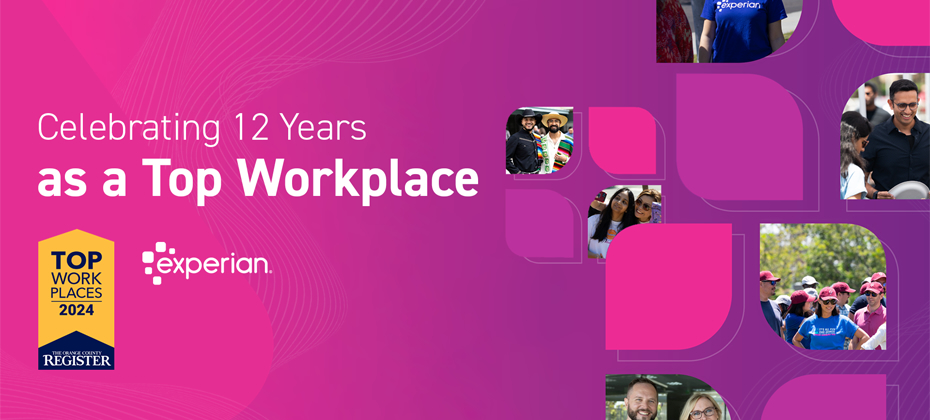Tech & Innovation

At Experian, we are continually innovating and using technology to find solutions to global issues, modernize the financial services industry and increase financial access for all.
DEI

Our deep commitment to social and financial inclusion is reflected in our workplace culture, our partnerships and our efforts to break down the barriers to financial equity.
Financial Health

Our initiatives are dedicated to getting tools, resources and information to underserved communities so that consumers can best understand and improve their financial health.
Latest Posts:

Patients use self-service tools to easily connect with providers online and manage administrative tasks 24/7. Common patient self-service tools include patient portals, online scheduling and mobile registration. Self-service solutions also include robust financial tools that help patients update insurance information, get accurate estimates, apply for charity care, set up payment plans, combine payments to multiple providers or set up a fundraising page. Lorem Ipsum comes from sections 1.10.32 and 1.10.33 of "de Finibus Bonorum et Malorum" (The Extremes of Good and Evil) by Cicero, written in 45 BC. This book is a treatise on the theory of ethics, very popular during the Renaissance. The first line of Lorem Ipsum, "Lorem ipsum dolor sit amet..", comes from a line in section 1.10.32. Heading 2 Related Posts

Title for the News Blog Contrary to popular belief, Lorem Ipsum is not simply random text. It has roots in a piece of classical Latin literature from 45 BC, making it over 2000 years old. Richard McClintock, a Latin professor at Hampden-Sydney College in Virginia, looked up one of the more obscure Latin words, consectetur, from a Lorem Ipsum passage, and going through the cites of the word in classical literature, discovered the undoubtable source. Lorem Ipsum comes from sections 1.10.32 and 1.10.33 of "de Finibus Bonorum et Malorum" (The Extremes of Good and Evil) by Cicero, written in 45 BC. This book is a treatise on the theory of ethics, very popular during the Renaissance. The first line of Lorem Ipsum, "Lorem ipsum dolor sit amet..", comes from a line in section 1.10.32.

Experian’s groundbreaking generative AI-powered tool, Experian Assistant, has earned the prestigious 2025 BIG Innovation Award in the Products for Financial Services category. This recognition underscores Experian’s commitment to pushing the boundaries of innovation by helping businesses achieve success and enhancing consumer experiences. The BIG Innovation Awards, celebrated since 2011, honor organizations and solutions that redefine excellence through creativity and measurable impact. Experian Assistant was recognized for transforming how financial institutions approach data and analytics, enabling faster, smarter decision-making that enhances customer experiences and operational efficiency. Redefining Financial Services Integrated with the Experian Ascend Platform™, Experian Assistant functions as a 24/7 data expert, enabling financial institutions to optimize their credit and fraud models with ease. Using natural language processing (NLP), the virtual assistant guides users providing insights, recommendations and coding assistance. The impact is transformative: Experian Assistant cuts model-development timelines from months to just days— and even hours in some cases. By helping users analyze credit and fraud data, adjust model attributes and streamline workflows, it empowers organizations to innovate faster and make data-driven decisions with confidence. Powered by agentic AI technology, Experian Assistant reimagines how data scientists and analysts approach their work. It accelerates insights, fosters collaboration and empowers businesses to deliver exceptional customer experiences while reducing the time and resources needed to bring new initiatives to market. Driving Results Across Industries While tailored for financial services, Experian Assistant’s capabilities extend across industries. Businesses can leverage its tools for data exploration, model deployment, performance monitoring and faster time-to-market for new offerings. With Experian Assistant, users gain a powerful edge in scoring more consumers, optimizing processes and enhancing overall customer satisfaction. Recognized Excellence The 2025 BIG Innovation Awards spotlight trailblazers evaluated on creativity, impact and results by seasoned business leaders. This accolade solidifies Experian Assistant’s position as a game-changing solution in financial services and beyond.

The recent wildfires in Los Angeles are now among the most destructive recorded in California’s history. Thousands of structures have been damaged or destroyed, and many families are facing the heartbreaking loss of their homes, businesses and personal belongings. The fires have also tragically claimed lives and caused significant injuries. In the wake of such devastation, the immediate priority for everyone is, of course, ensuring the safety and well-being of themselves and their loved ones. As communities come together to navigate this challenging time, we are committed to being a resource to consumers. Our hope is to help those impacted by the fires preempt or prevent potential impacts to their financial health and identity where possible. If you or someone you know has been impacted by the Los Angeles fires, here are some key points to keep in mind. 1. Safeguard Your Identity Natural disasters can unfortunately create opportunities for identity theft. Important documents containing personal information may be lost or scattered. According to the Federal Trade Commission, instances of identity theft have nearly tripled over the last decade and scammers often exploit chaotic situations and vulnerable consumers. Be Wary of Scammers: Sadly, following natural disasters, opportunistic fraudsters often deploy schemes tied to charity and donations, insurance, new financing, construction or clean up, and more. These perpetrators may lift and deploy tactics that were successful following natural disasters in other areas and deploy them to target those impacted by the LA wildfires. Stay vigilant against fraudsters who may try to steal your personal information or money through disaster-related schemes or offers that sound too good to be true. Use Free Credit Monitoring and Fraud Alerts: Take advantage of these services to keep an eye on your credit activity. If you notice anything suspicious, report it immediately to your bank or financial institution. Consider Freezing Your Credit: If your personal information has been compromised, freezing your credit with the three major credit reporting agencies can prevent new fraudulent credit applications. You can freeze your credit for free with Experian by clicking here or enrolling in its free app on your mobile device. 2. Contact Your Lenders In times of crisis, many financial institutions are willing to work with affected consumers. If you’re worried about paying your bills on time due to the fires, reach out to your mortgage, auto loan, and credit card companies as soon as possible. Your lenders can report accounts as deferred or in forbearance if you live in an area impacted by the fires. This means no late payments will be reported, allowing you to focus on immediate concerns. However, interest might continue to accrue on the balance, so be sure to understand the terms of any agreement. 3. Use Your Credit Report as a Financial Tool Tracking down contact information for each of your lenders can be overwhelming. Your credit report, which you can access for free at annualcreditreport.com or via the Experian website or its free app on your mobile device, can be a helpful starting point. While, understandably, protecting your credit history or identity may not be your immediate concern, taking a proactive approach could help prevent any or further damage to your financial health at a time when you need access to credit the most. For more tools and resources to protect your credit standing and financial health, please visit Ask Experian.

As we kick off a new calendar year, there’s already a lot of buzz in terms of expected advances in tech, especially for artificial intelligence. And what about fraud? Fraud isn’t just keeping pace with technology—it’s racing ahead. As the digital world expands, so too do the cunning schemes of fraudsters, who are more innovative and relentless than ever before. With businesses and consumers increasingly at risk, staying a step ahead requires insight into what’s next. Today, we released our annual Future of Fraud Forecast to highlight five threats that could bring challenges this year for businesses and consumers. They include: Crypto highs and lows: Recent events have led to cryptocurrency like Bitcoin increasing dramatically in value. Experian forecasts that criminals will be more motivated to target consumers and crypto providers, leveraging tried-and-true schemes like investment and romance scams, as well as fake websites offering cryptocurrency in an attempt to swindle money from unsuspecting people hoping to ride the wave. Companies will need to leverage robust fraud prevention measures and provide educational resources for consumers to safeguard themselves from these scams. Pig butchering scams get meaty: A fraudster’s endgame is to make off with as much money as possible, and pig butchering scams are a prime way of doing so. Criminals will “fatten up” their victims by enticing them over time to participate in an investment scheme and then disappear with the money, leaving their victims with significant financial losses. This requires the fraudster to build a relationship with the victim and establish trust so they can convince them to hand over their bacon. While this type of scam already exists, Experian forecasts that criminals will find ways to produce results faster and in more convincing ways that will dupe people more easily and allow them to elude detection for longer. Is it a social media challenge or a crime? Social media has fueled viral products and trends that are typically great recommendations or life hacks. However, last year, a form of check fraud went viral that involved people recording themselves writing bad checks, depositing them at the ATM and withdrawing cash before the check bounced. Some participants in this trend may not have been fully aware of the repercussions. In reality, consumers were committing check fraud by joining the bandwagon. Experian predicts that social media users could perpetuate additional trendy financial fraud schemes with the fraudsters being everyday people instead of savvy criminals. Unhealthy password spraying: With the amount of personally identifiable information that healthcare companies have on consumers, Experian forecasts fraudsters will deploy large-scale password spraying cyberattacks using GenAI-created bots to attack healthcare companies at scale to gain access to a company’s systems and the personally identifiable information of employees and patients. Password spraying, also known as credential stuffing or credential guessing, is when an attacker applies a list of commonly used passwords against a list of accounts to guess the right password. This used to be done by humans but, as technology has become more sophisticated, so have the fraudsters. These attacks can now be fueled by GenAI — making the attacks exponentially larger, faster and harder to detect. A new generation of bots up the ante: Bot attacks are a well-known tactic used to defraud people and companies by carrying out repetitive instructions to perform a variety of fraud schemes. A new generation of bots has emerged, known as Gen4 bots. Typically built using AI tools and trained to emulate human behavior, these bots are notoriously more difficult to detect and have the potential to bypass firewalls and security with ease. Experian predicts that as Gen4 bot attacks grow, leveraging behavioral analytics will become table stakes for companies to identify and mitigate this type of automated fraud. Being proactive is paramount in the fight against these and other future fraud threats. Businesses should work with a trusted partner to ensure that they leverage the right data, advanced analytics and technology to mitigate risk. Experian offers identity verification and fraud prevention solutions available on the Experian Ascend Platform™ to help companies anticipate, prepare for and fight fraud. Learn more about Experian’s fraud prevention offerings here.

We are thrilled that for the sixth consecutive year, Experian has earned a score of 100 on the Human Rights Campaign Foundation’s (HRCF) 2025 Corporate Equality Index (CEI). This recognition underscores our commitment to LGBTQ+ workplace equality. We are honored to join the ranks of 765 U.S. businesses that have been awarded the HRCF’s Equality 100 Award, celebrating our leadership in fostering an inclusive workplace. Experian’s dedication to supporting the LGBTQ+ community is reflected in several key initiatives: Name Change Process: We have a process for transgender and non-binary consumers to update their names on credit reports, ensuring their identities are accurately represented. LGBTQ+ Allyship 101 Training: This new training program is available to all Experian employees, promoting allyship and understanding within our workforce. Pride ERG Parenting Committee: Launched to support parents, grandparents and guardians of LGBTQ+ individuals, this committee provides valuable resources and community. Transgender Resource Guide: This guide supports employees who are transitioning at work, offering education and resources for colleagues and managers. Partnerships: We collaborate with organizations such as Out & Equal, GenderCool, The Trevor Project and Born This Way Foundation’s Channel Kindness to provide financial health, mental health and other resources to empower both our internal and external communities. At Experian, we are proud to be part of this movement towards greater equality and inclusion. We remain dedicated to fostering a workplace where every employee feels respected, valued and empowered to bring their authentic selves to work. Learn more about how we drive social impact in English, Portuguese and Spanish.

This lawsuit relates to matters that as an industry we have been collectively discussing with the CFPB. We have operated in good faith with the CFPB throughout. Despite our constructive engagement and long track record of working alongside the CFPB to ensure consumers can easily dispute potentially inaccurate information, the CFPB chose to file a lawsuit with no communication, and no response to our outstanding communications with them. The lawsuit is completely without merit. It is contrary to longstanding regulatory and judicial precedent and is another example of irresponsible overreach by the CFPB. Our legal position is strong, we will defend it vigorously and are confident we will prevail. We do not expect this to have any material impact on our business. We take our commitment to meeting the needs of consumers and adhering to all our regulatory obligations seriously. We take great steps to ensure we investigate every consumer dispute thoroughly and go above and beyond the requirements of the law. We take strong exception to the substance and the tone of the CFPB’s accusations.

Achieving Top Workplace recognition for 12 consecutive years is no small feat, yet Experian North America has done just that. Named a Top Workplace by the Orange County Register once again, this milestone reflects not just policies or benefits but what truly makes Experian exceptional: our people. As Hiq Lee, Chief People Officer at Experian North America, notes, this honor is a testament to the remarkable contributions of our team. Experian’s employees shape an environment where innovation, inclusivity, and purpose thrive. More Than Work What sets Experian apart is our engagement with the world and community. Through initiatives like the Experian Volunteer Leadership Network and partnerships with organizations such as the Octane Foundation for Innovation and the Hispanic Chamber of Commerce of Orange County Education Foundation, our impact extends beyond the workplace. In 2024, we earned additional recognitions, including being named one of the World’s Best Workplaces™ by Fortune and Great Place to Work®. We were also recognized as one of the Best Workplaces for Parents, Millennials, and in Technology. The Secret to Success Our success lies in focusing on people. Experian is a place where careers are built, ideas are encouraged, and employees feel valued. Initiatives such as, Employee Resource Groups foster belonging, Mental Health First Aiders provide support, and technology hackathons inspire creativity. Innovation at the Core Innovation continues to drive our success. By leveraging technologies like artificial intelligence and machine learning, we are redefining decision-making and fraud prevention. This commitment to innovation empowers businesses and consumers worldwide, aligning with our mission to promote financial inclusivity. Looking Ahead For Experian, being a Top Workplace for more than a decade isn’t a finish line—it’s a springboard. With an ongoing commitment to our employees and communities, we continue to evolve, creating better experiences for our team, clients, and the world.



